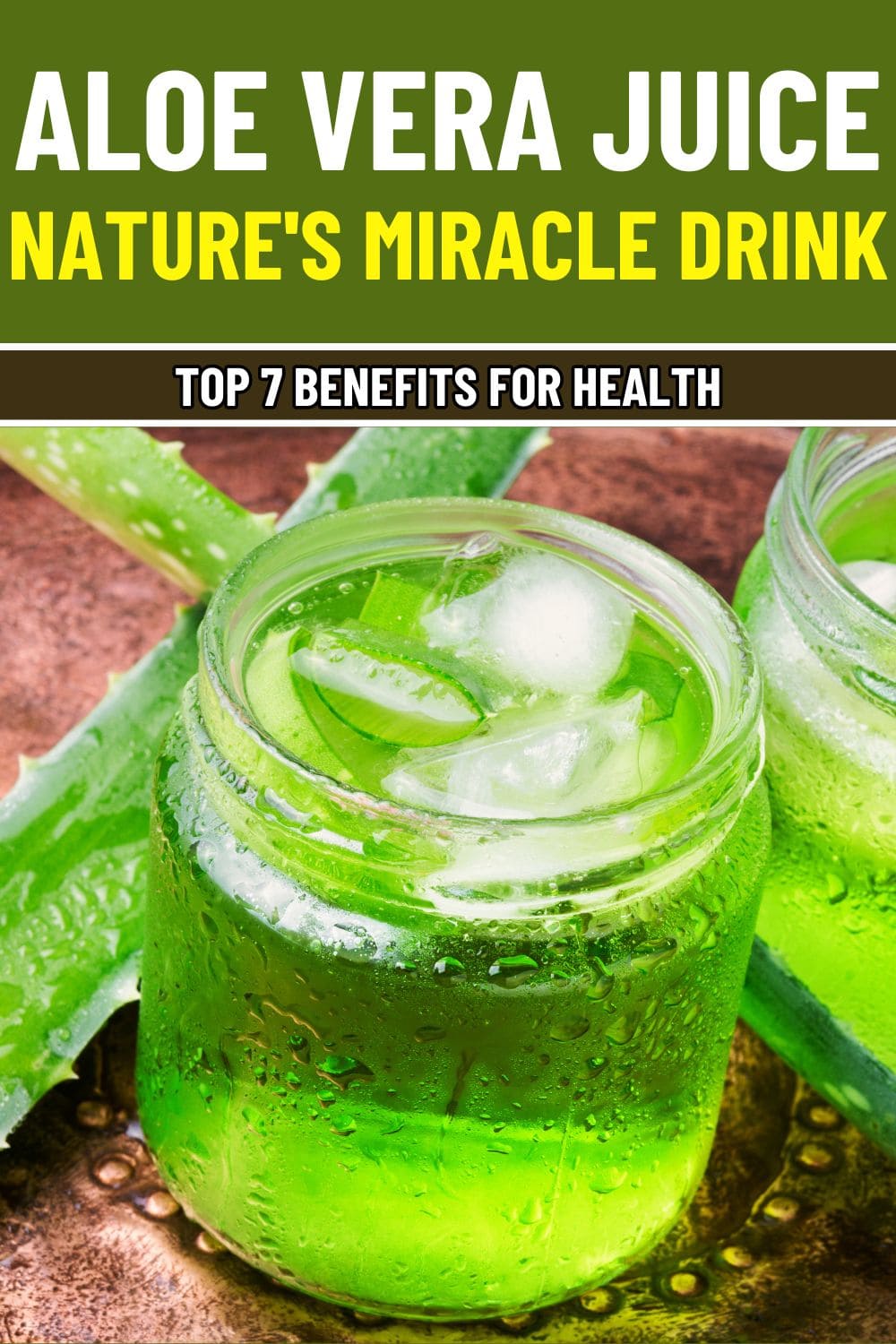Aloe vera juice, derived from the thick, succulent leaves of the Aloe vera plant, is more than just a thirst quencher.
Packed with vitamins, minerals, and antioxidants, this natural drink offers a plethora of health benefits that have been celebrated across cultures for centuries.
From aiding digestion to promoting radiant skin, Aloe vera juice is a must-have addition to your wellness routine.
#1. Enhances Digestive Health
Aloe vera juice is renowned for its soothing effects on the digestive system. Its natural enzymes, such as amylase and lipase, help break down food and improve nutrient absorption.
According to a 2018 study in the Journal of Gastroenterology, Aloe vera juice may relieve symptoms of irritable bowel syndrome (IBS) by reducing inflammation in the gut lining.
Additionally, its high water content helps prevent constipation, ensuring a healthy digestive tract.

#2. Supports Hydration and Detoxification
Staying hydrated is essential for overall health, and Aloe vera juice is an excellent hydrating agent due to its 95% water composition.
Moreover, it helps flush out toxins by promoting liver function. Rich in antioxidants like vitamin C (approximately 20 mg per 100 ml), Aloe vera juice combats oxidative stress, further supporting the body’s natural detoxification processes.
#3. Boosts Immune System
The combination of antioxidants and polysaccharides in Aloe vera juice strengthens the immune system by enhancing the activity of white blood cells.
Research published in Immunology Research highlights how these compounds help the body fight off infections and maintain overall immunity.

#4. Improves Skin Health
Drinking Aloe vera juice hydrates the skin from within, reducing dryness and promoting elasticity. Its vitamin C content plays a pivotal role in collagen production, which is essential for youthful and glowing skin.
A 2019 study in the Journal of Dermatological Science also noted that Aloe vera’s antioxidants protect the skin from damage caused by UV radiation and pollution.
#5. Reduces Inflammation
Aloe vera contains compounds like bradykinase and salicylic acid, which exhibit potent anti-inflammatory properties.
Whether consumed or applied topically, Aloe vera juice alleviates inflammation associated with arthritis, muscle soreness, or inflammatory bowel disease (IBD).

#6. Regulates Blood Sugar Levels
Preliminary studies suggest that Aloe vera juice may help manage blood sugar levels.
A 2016 review in Phytotherapy Research found that Aloe vera improved fasting blood glucose levels in individuals with Type 2 diabetes.
However, it’s essential to monitor consumption and consult with a healthcare provider for optimal results.
#7. Promotes Heart Health
Aloe vera juice contributes to cardiovascular health by improving blood circulation and reducing oxidative stress in arteries.
Its potassium content (approximately 55 mg per 100 ml) helps regulate blood pressure, reducing the risk of heart-related issues.

How to Incorporate Aloe Vera Juice into Your Routine
- Morning detox drink: Consume 30 ml of pure Aloe vera juice diluted with a glass of water on an empty stomach for optimal digestive and detox benefits.
- Smoothies: Add a tablespoon of Aloe vera gel to your favorite smoothie recipe for an added nutritional boost.
- Infused water: Mix Aloe vera juice with a splash of lemon and honey for a refreshing, health-enhancing drink.
- Topical use: While not consumed, you can apply Aloe vera juice directly to the skin for hydration and healing of minor burns or cuts.

Cautions and Precautions
Excessive intake can cause digestive discomfort or diarrhea due to its natural laxative effect. Stick to 30–50 ml per day.
Avoid Aloe vera juice during pregnancy or breastfeeding, as it may stimulate uterine contractions or affect milk production.
Test a small amount first to ensure you don’t have an allergic reaction. People with allergies to plants in the Liliaceae family (like garlic and onions) should be particularly cautious.
Aloe vera juice can interact with certain medications, including diuretics, blood sugar-lowering drugs, and anticoagulants.
Disclaimer
This article is for informational purposes only and does not constitute medical advice.
Always consult a qualified healthcare provider before starting any new health regimen, especially if you have existing health conditions or are on medication.

The Ultimate Guide to Aloe Vera Juice: Benefits, Uses, and Precautions
